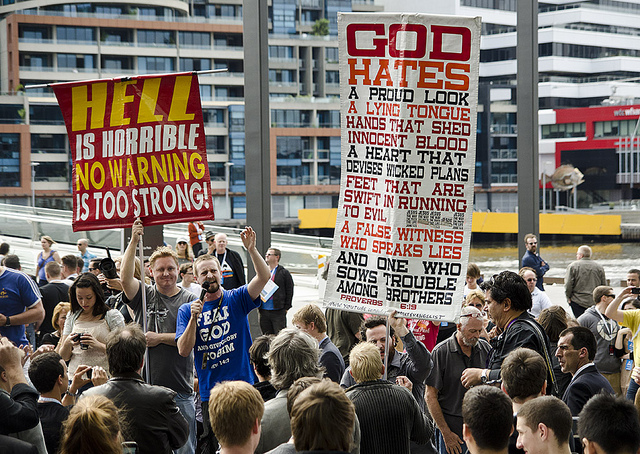The pursuit of power is a fundamental factor in the history of humanity. Individuals have made incredible sacrifices and committed horrific atrocities in the pursuit of it, as often as not, without ever attaining what they sought. The pursuit of power destroyed Julius Caesar, it kept Napoleon from enjoying his victories and sent him to his doom in wintry Russia, and it did the same thing to Hitler just over a century later. Power is never enough, those who grasp it always want more. As Princess Leia told Governor Tarkin in Star Wars, "The more you tighten your grip, Tarkin, the more star systems will slip through your fingers." Or in the more philosophical realm if you prefer, Lord Acton warned, "Power tends to corrupt, and absolute power corrupts absolutely."
It was in 2014 that Russell Moore, the president of the Ethics and Religious Liberty Commission with the Southern Baptist Convention, wrote a book entitled, Onward: Engaging the Culture Without Losing the Gospel. In that book Dr. Moore warned the Church in America, in particular, of the dangers of trading devotion to the Gospel for Earthly power.
“Some sectors of religious activism are willing to receive, as Christians, heretics and demagogues, so long as they are with us politically....When that happens, we are demonstrating what we believe to be truly important, and we are embracing then a different gospel from the gospel of Jesus Christ.”
I have written about this danger often enough in the past, but seeing Dr. Moore's quote for the first time felt like reason enough to revisit it once more.
What do we gain, as a Church, if we gain earthly power, if to do so we have to align ourselves with individuals or institutions which are antithetical to the Gospel? Do we "win" if we abandon the teachings of Christ in order to advance a political agenda? It is not as if Jesus didn't himself address this topic, "What good is it for someone to gain the whole world, yet forfeit their soul?" (Mark 8:36)
The question is simple: Which is more important to you, a victory in the political realm, or a victory for the Gospel?
If human history is any indication, and it is, you're not likely to have both.
As Joshua said to the people of Israel at the end of his time leading them, "choose for yourselves this day whom you will serve...As for me and my household, we will serve the LORD." (Joshua 24:14-15). You can only serve one master, if it isn't Christ, you've already lost.

